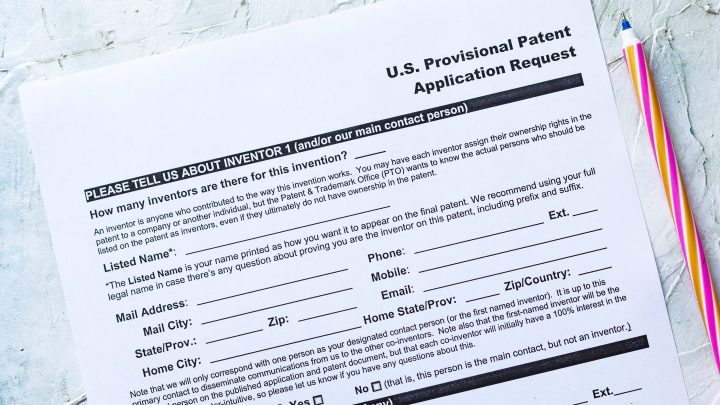
Can AI patent an invention?

Artificial intelligence has become part of everyday life, but as the technology rapidly advances, federal agencies are trying to adopt new standards for its use. One agency, the United States Patent and Trademark Office, recently released guidance on the use of AI to create patented inventions.
“Marketplace” host Kai Ryssdal spoke with Janet Freilich, a professor at Fordham University Law School, about what these policies mean for inventors.
Below is an edited transcript of their conversation.
Kai Ryssdal: Since we last spoke, there is new guidance out from the Patent and Trademark Office on AI in patent creation. What’s the news?
Janet Freilich: That’s right. So the Patent and Trademark Office has issued guidance clarifying whether an artificial intelligence machine can be an inventor on a patent. Essentially it’s saying, who gets the money from the patent? Is it AI or is it going to be a person?
Ryssdal: And? Don’t leave me hanging.
Freilich: And the patent office says it’s not AI, it’s going to be the person. So they say inventors have to be human. AI can’t be an inventor.
Ryssdal: But AI can be used in the invention process, right?
Freilich: Yes, that’s right. And that wasn’t clear before the patent office issued this guidance. The patent office says that inventions where AI is used to help come up with the invention, are, I’m gonna use the legal language here, are not categorically unpatentable. Digging apart the legalese here, talking about a scenario where a person is using AI to make an invention, the person can be listed as an inventor, but you don’t also have to name the AI. And the reason that mattered is because it wasn’t clear that those joint person-AI inventions would actually be patentable at all.
Ryssdal: OK. So if I’m an inventor of what have you, this is good news for me. It expands the scope and reach of, of my intellectual [property], I suppose. If I’m, like, OpenAI and AI is my product and I want it to be as useful as, as ever, I’m probably not too happy.
Freilich: Well, I think it’s probably good all around, actually. So if you’re OpenAI, maybe you were hoping for an outcome where you, the AI developer, was going to have an ownership stake in all of these inventions. Sure, that would have been the best-case scenario. But let’s say this is the second-best-case scenario, because it incentivizes people to use your product, and people who use your product can still get a patent on whatever that end product is. And so I think it’s good all around.
Ryssdal: Maybe skipping a generation or two of generative AI development, although maybe this is already happening, I don’t know. But at some point, AI is going to be able to invent something all by its lonesome. Then what happens?
Freilich: Yes, that’s right. And AI has actually already done that. And it’s still developing. And that case has been heard by courts and seen by the patent office. And the patent office says if AI was the only one to develop the invention, if there were no people involved at all, that’s probably not patentable. So, AI can invent it, but they probably can’t get a patent on it.
Ryssdal: There’s a little bit of whack-a-mole here, right? Because this technology is developing incredibly fast. Federal bureaucracy, for all of its nimbleness sometimes, simply can’t keep up, right? The government is going to be behind.
Freilich: Maybe. What the patent office is trying to do is issue flexible guidelines that will apply as technology develops. And, you know, this is not a new problem. Technology has developed for many centuries, many millennia. Laws have proved able to adapt, sometimes they’re general enough that they can adapt. And the patent office has issued general guidelines that hopefully will take us through. But who knows? The future is changing. But they’ve said they can revise as necessary.
There’s a lot happening in the world. Through it all, Marketplace is here for you.
You rely on Marketplace to break down the world’s events and tell you how it affects you in a fact-based, approachable way. We rely on your financial support to keep making that possible.
Your donation today powers the independent journalism that you rely on. For just $5/month, you can help sustain Marketplace so we can keep reporting on the things that matter to you.

















